Back in December 2022, I headed to Manchester for a whirlwind day tour of some of its prestigious libraries! On the day I was lucky enough to take part in a tour of Chetham’s Library and spend a little time researching at the Portico Library. Unfortunately I was in Manchester on a day when the John Rylands Library was closed, but I did pop in to Manchester’s Central Library to visit The Reading Girl statue by Giovanni Ciniselli (1832-1883):
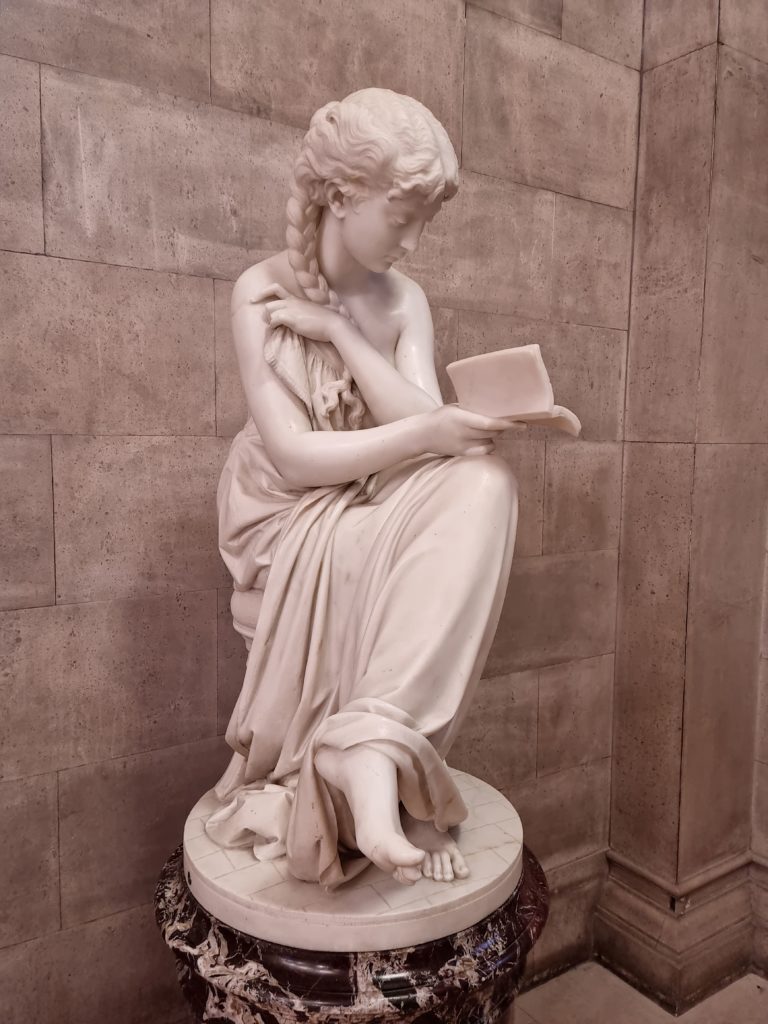
“She was bought in Italy by Daniel Adamson, the first chairman of the Manchester Ship Canal Company, and given to the library by his family in 1938. There is a bit of a mystery about what she is reading – we know that it was originally a poem called The Angel’s Story which was printed on paper and pasted into her marble book but, by the time she came to the library, this had disappeared and we have never been able to trace the poem since.”[1]
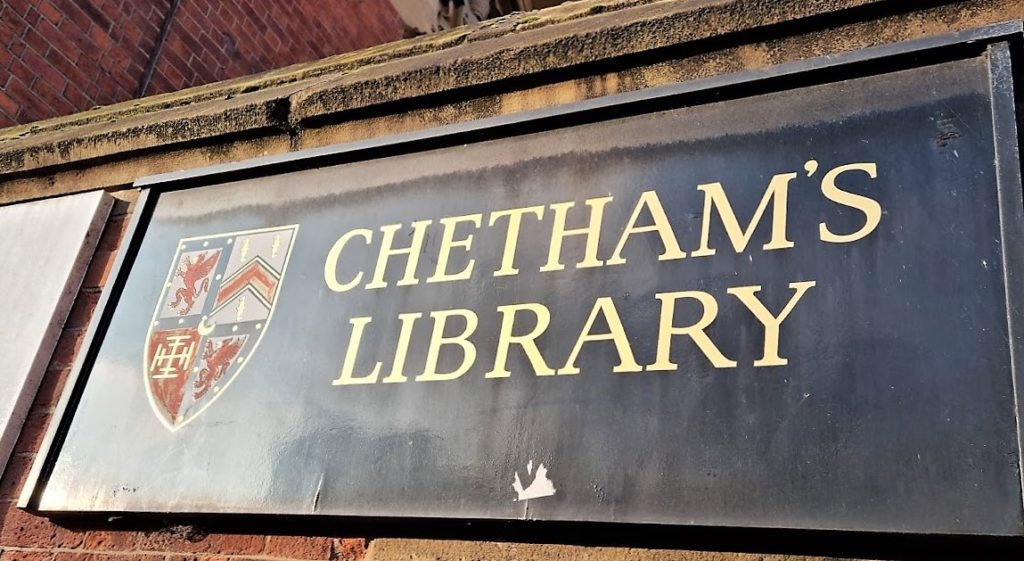
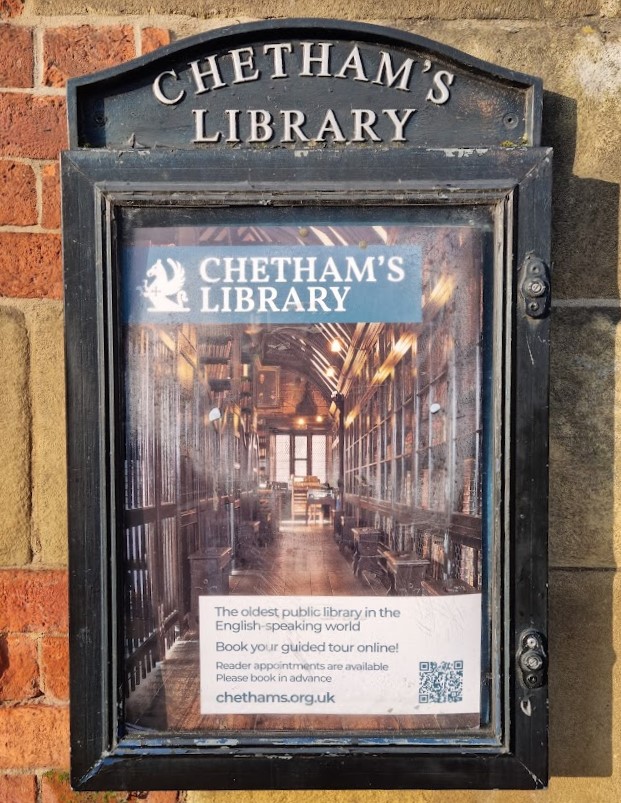
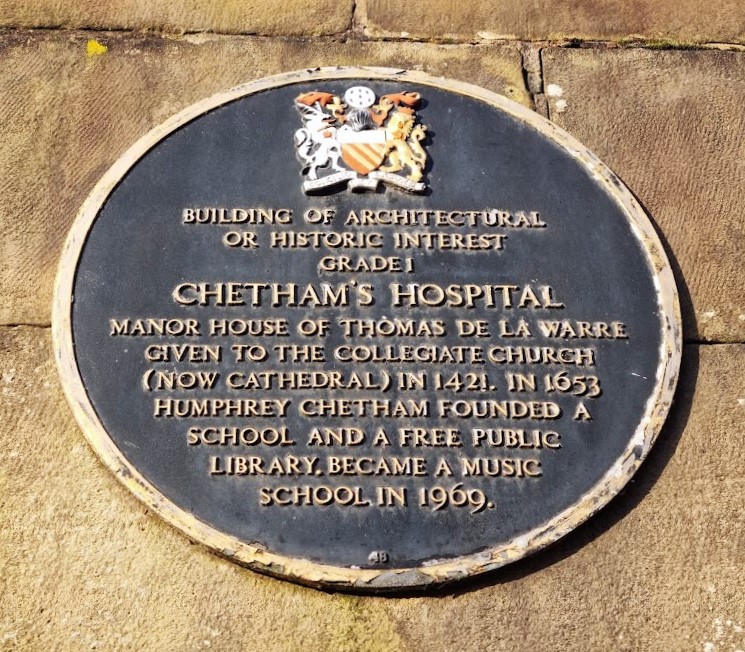
Chetham’s Library, founded in 1653 by Humphrey Chetham (1580-1653), is the oldest public library in the English speaking world. With more than 100,000 printed books, over 1,000 manuscript volumes and thousands more archival documents housed in a series of stunning medieval buildings on the site of the original Manchester Castle, Chetham’s is well worth a visit.
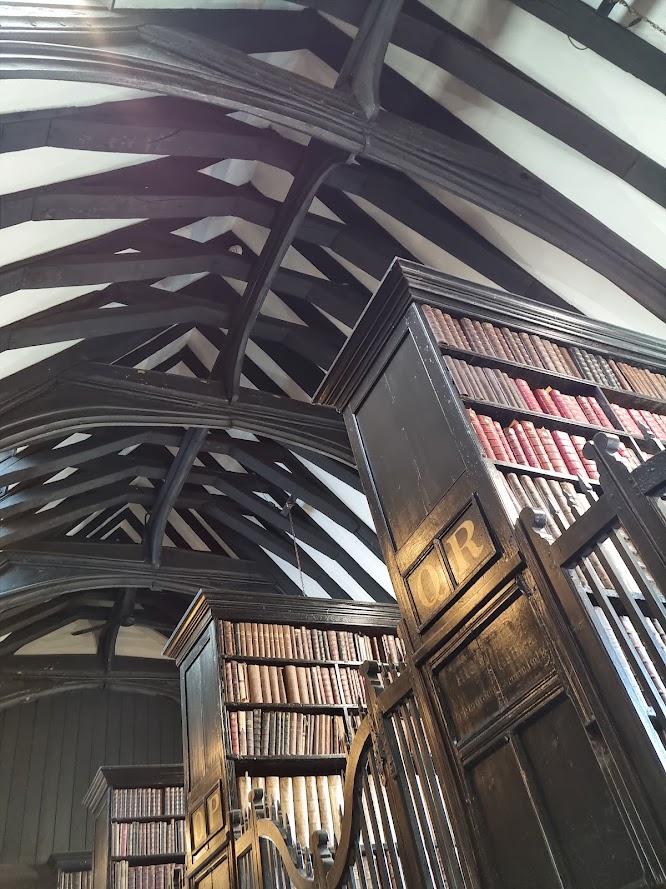
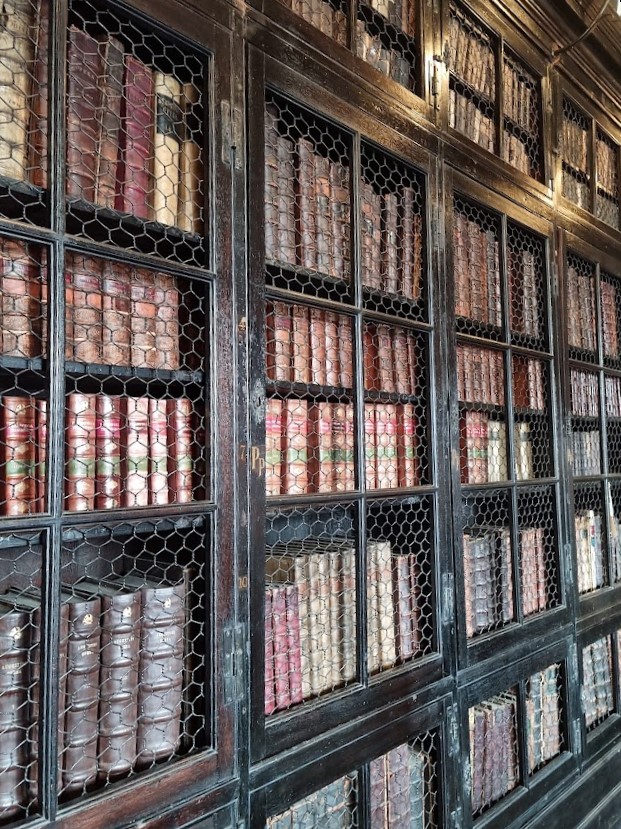
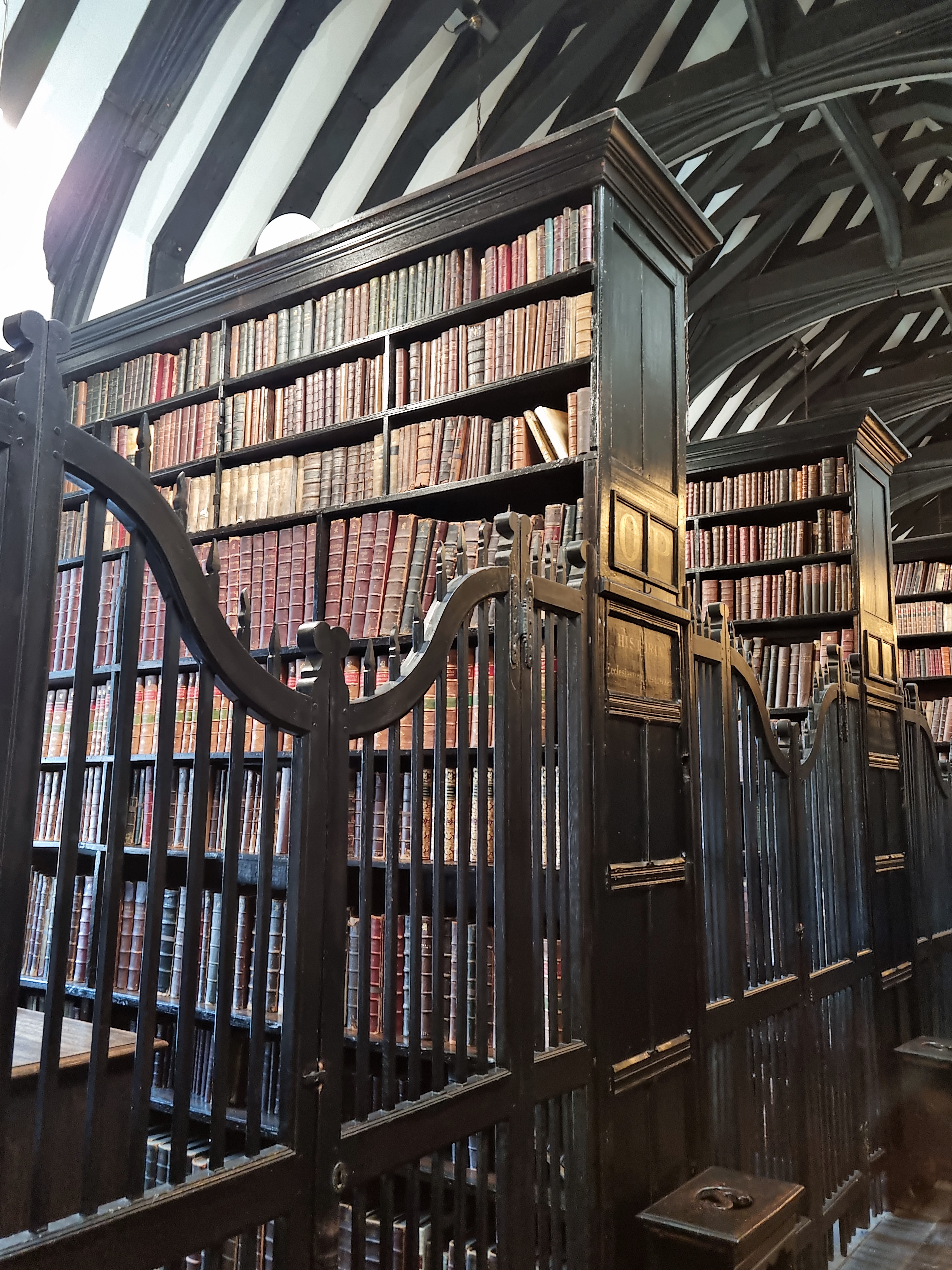
Founded only 27 years later, in 1680, the Library of Innerpeffray shares many similarities with Chetham’s. While Chetham’s is the oldest surviving public library in England, Innerpeffray was the first free lending library in Scotland. Both libraries were founded, alongside associated schools, by noblemen who left money for the purpose in their wills. In Humphrey Chetham’s 1651 will, it states that the library should be open “for the use of schollars and others well affected”, with the Keeper told to “require nothing of any man that cometh into the library”.[2] In the 1680 will of Innerpeffray’s founder, David Drummond, third Lord Madderty, similar sentiments are shared, with the library established “for the benefit and encouragement of Young Students”.[3]
Some additional highlights of my tour included seeing the surviving chained parish libraries and medieval cat flaps!
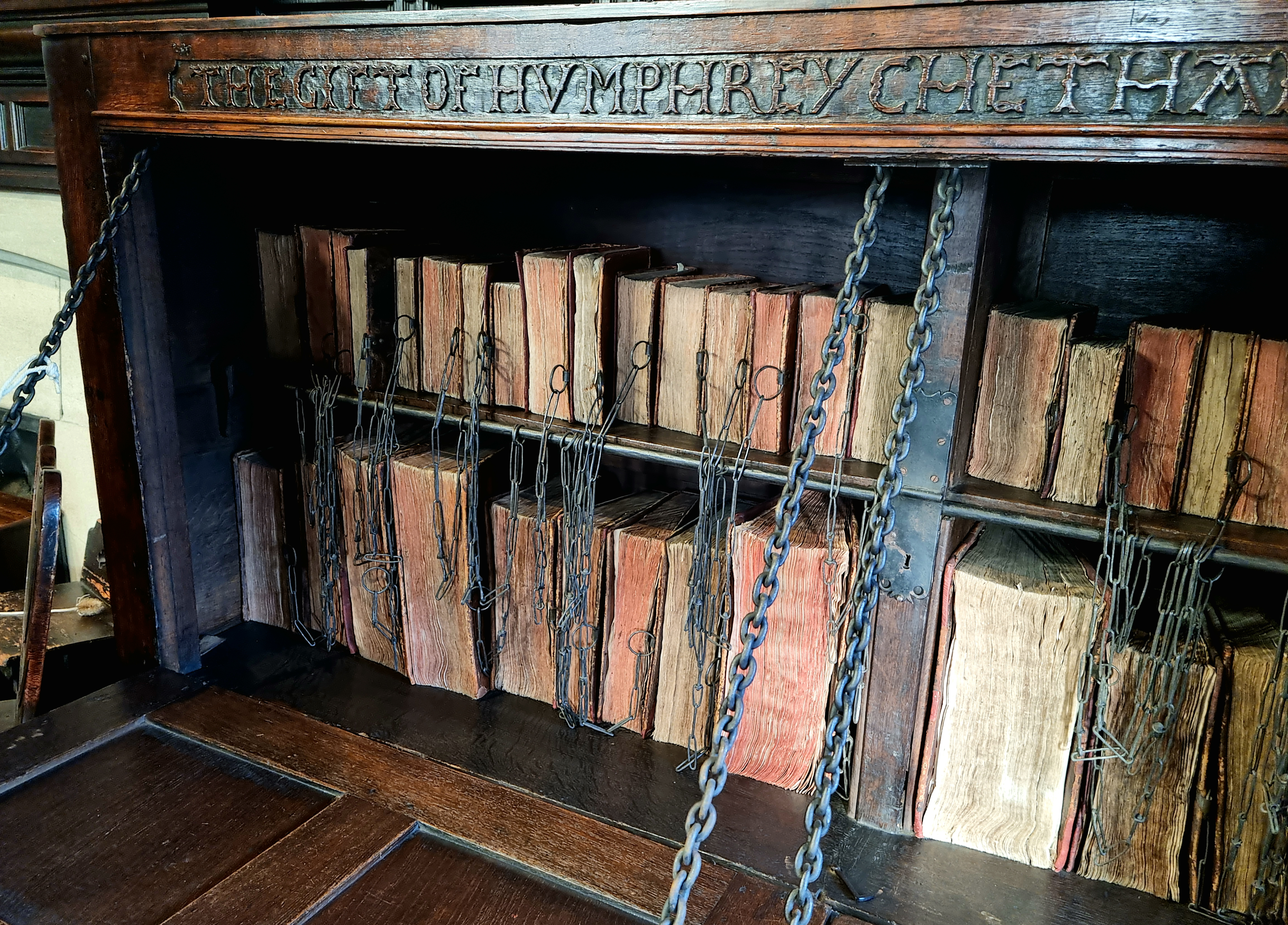
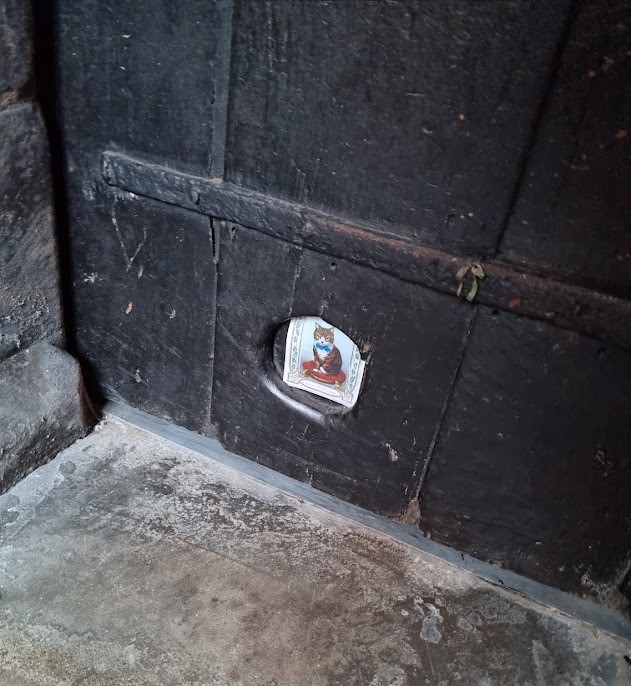
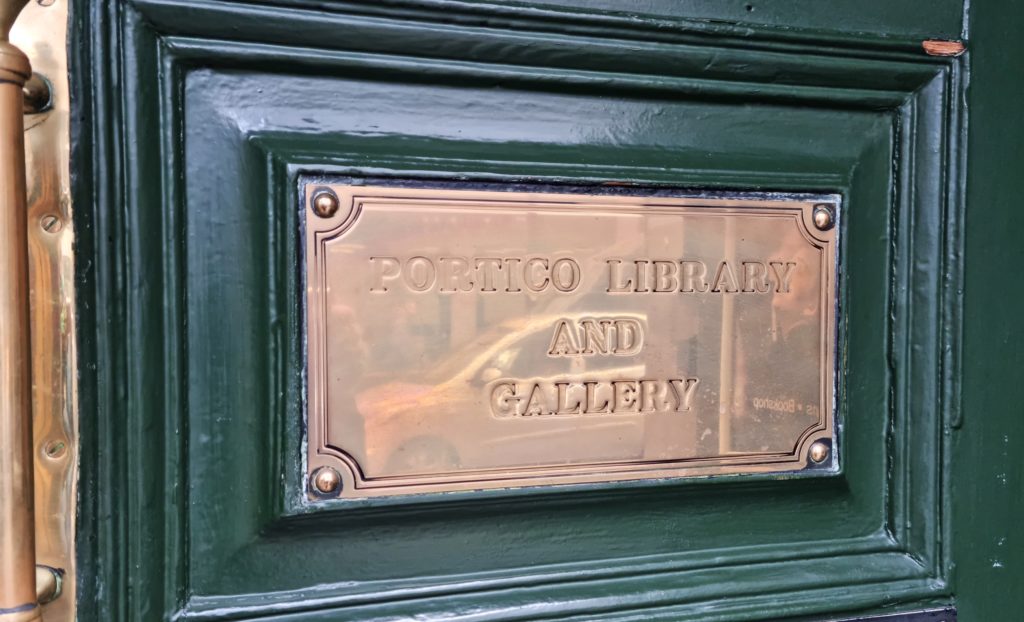
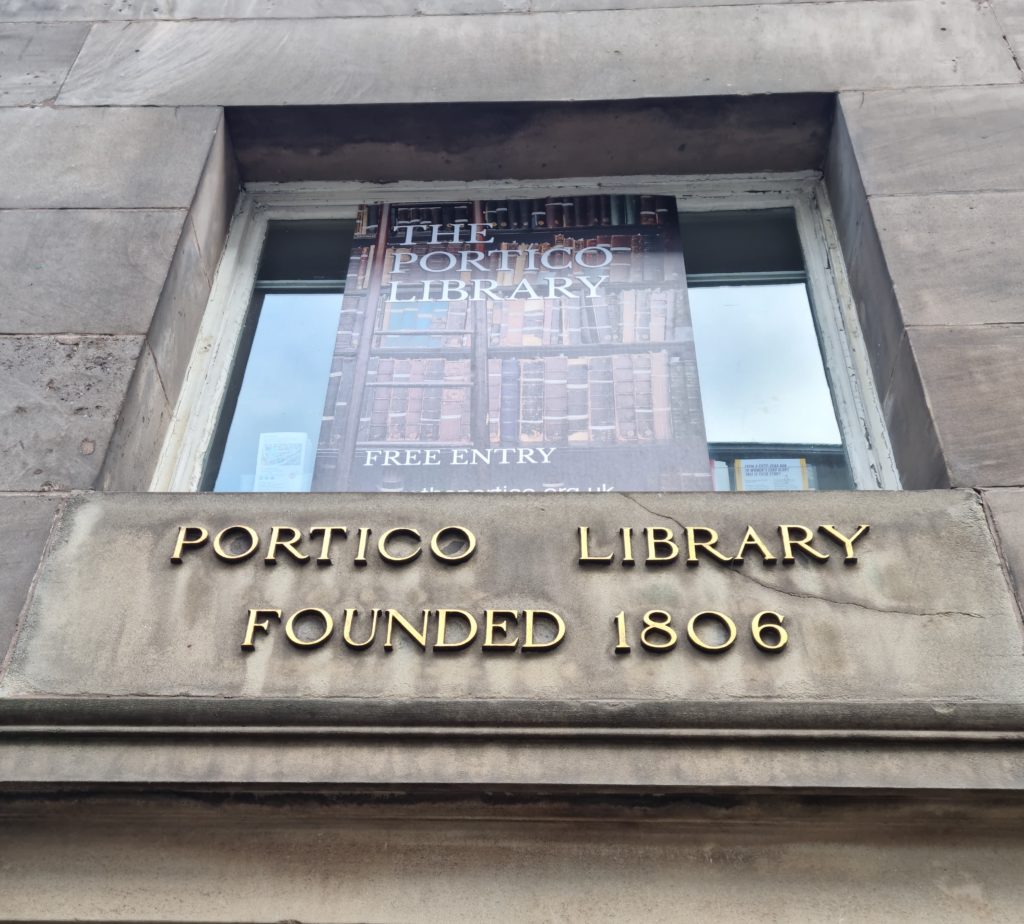
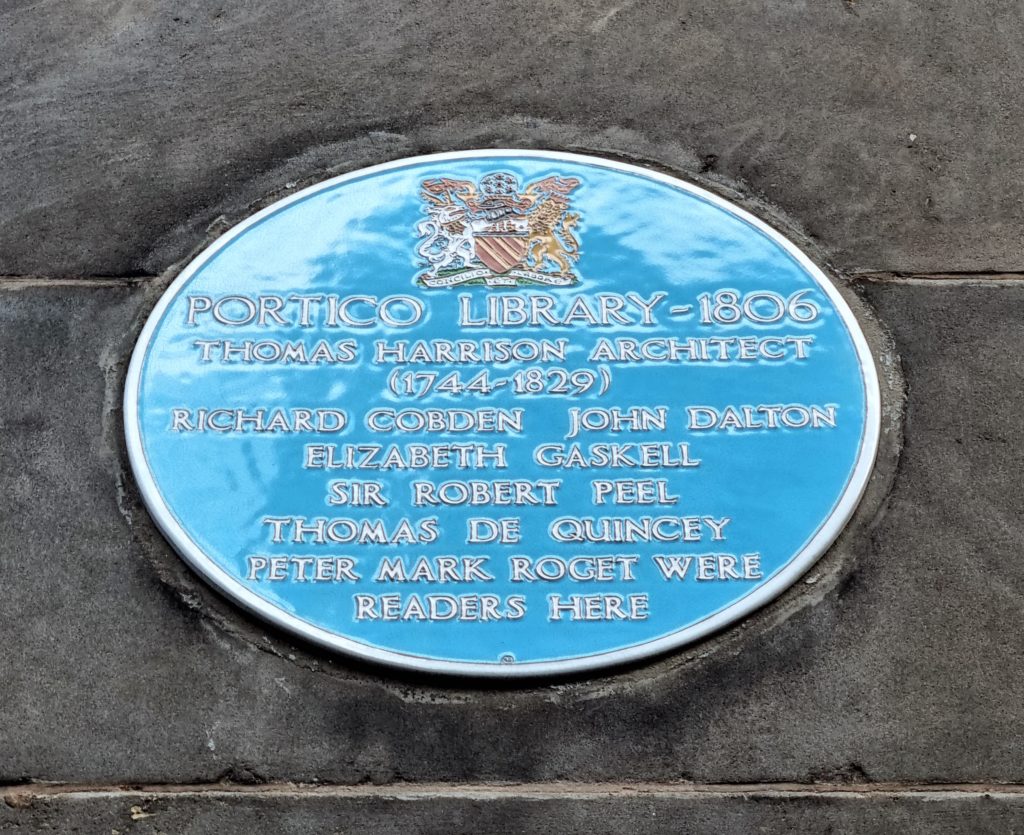
The next library on my tour was The Portico Library, a beautiful independent nineteenth-century subscription library, founded in 1806. William Gaskell, minister and husband of author Elizabeth Gaskell, was Chair of the Portico between 1849 and 1884 and visited Innerpeffray Library with Beatrix Potter’s parents in 1869.[4]


Visitors’ Book Volume 1, f.16v
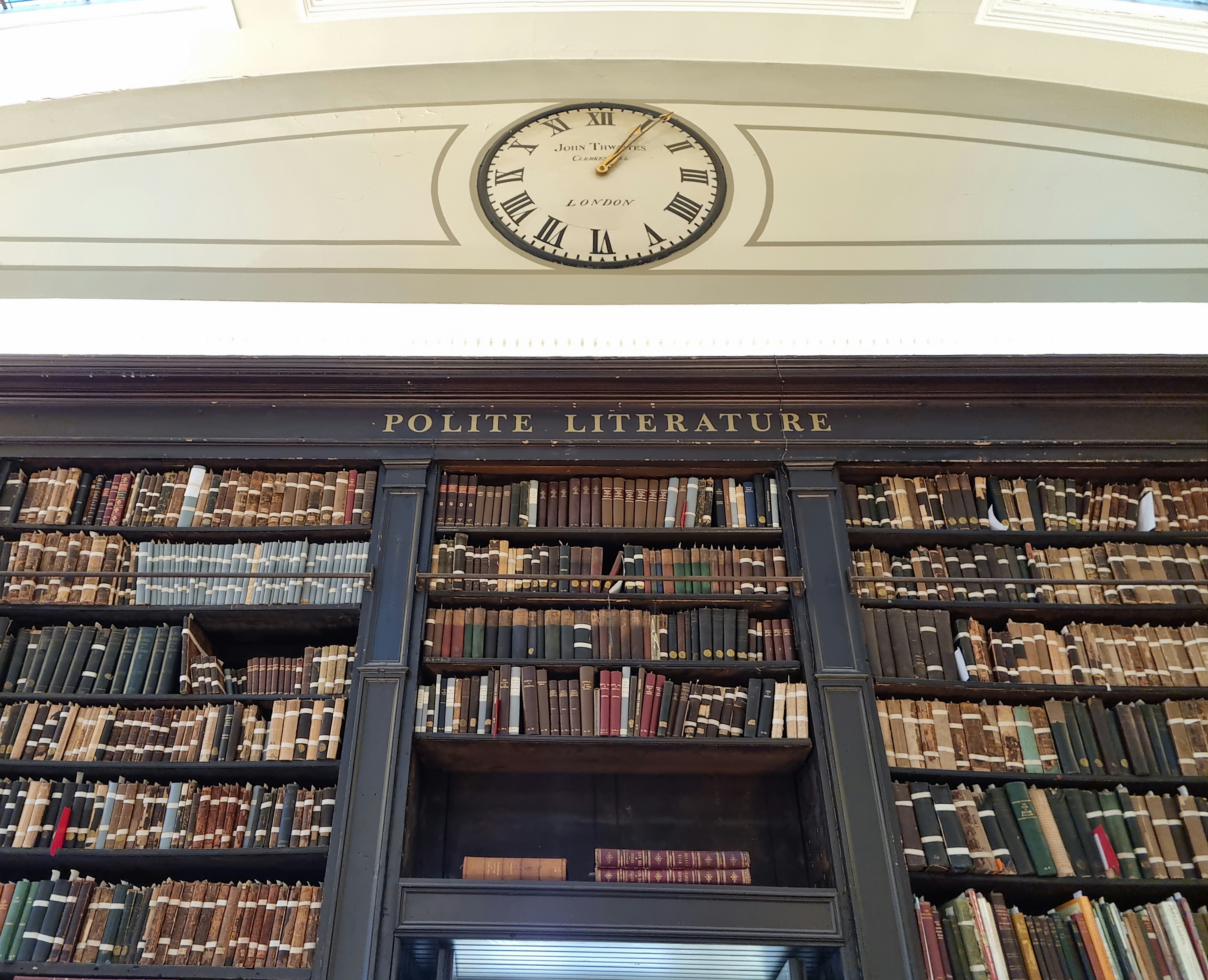
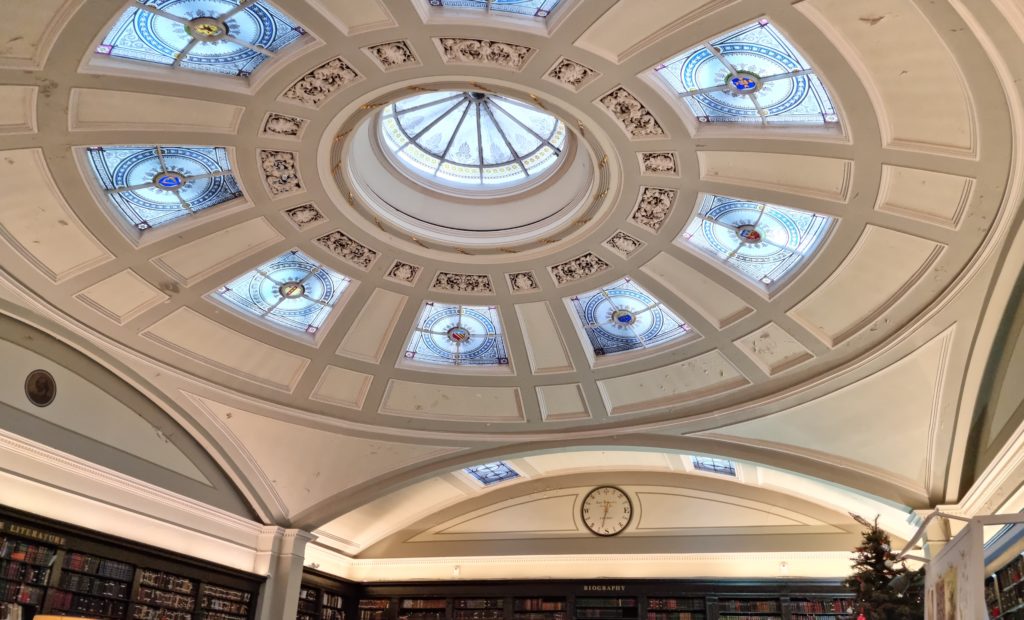
The staff at the Portico very kindly let me have a look at a couple of their Strangers’ Books – books which recorded details of visitors and readers from outside Manchester who were introduced and vouched for by members.[5]
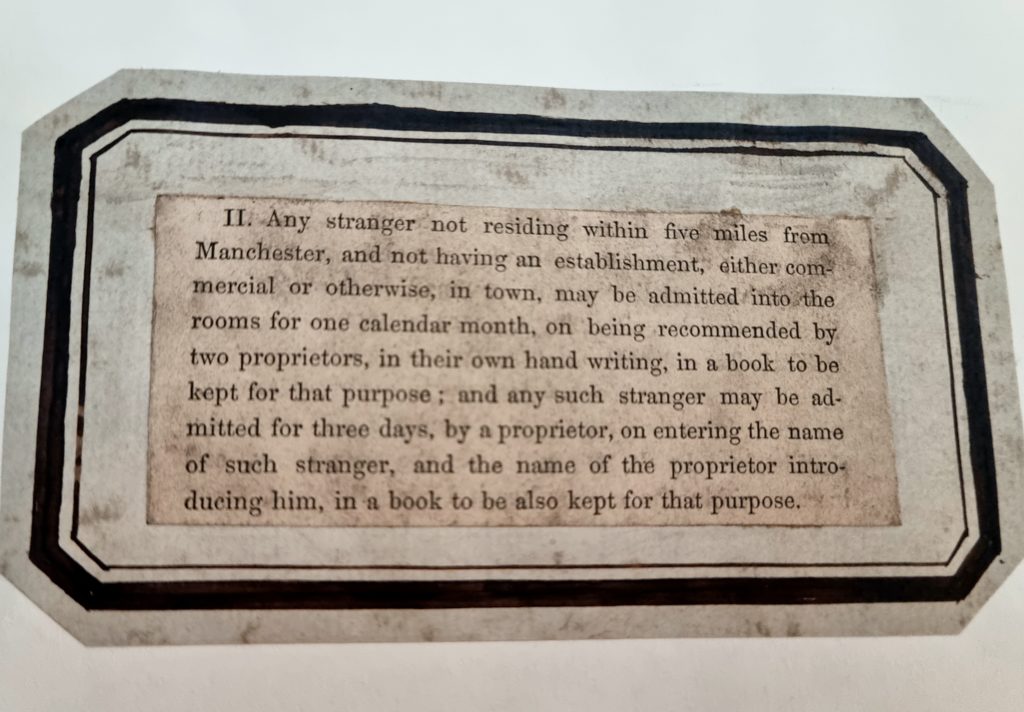
The instructions read: “Any stranger not residing within five miles from Manchester, and not having an establishment, either commercial or otherwise, in town, may be admitted into the rooms for one calendar month, on being recommended by two proprietors, in their own handwriting…”
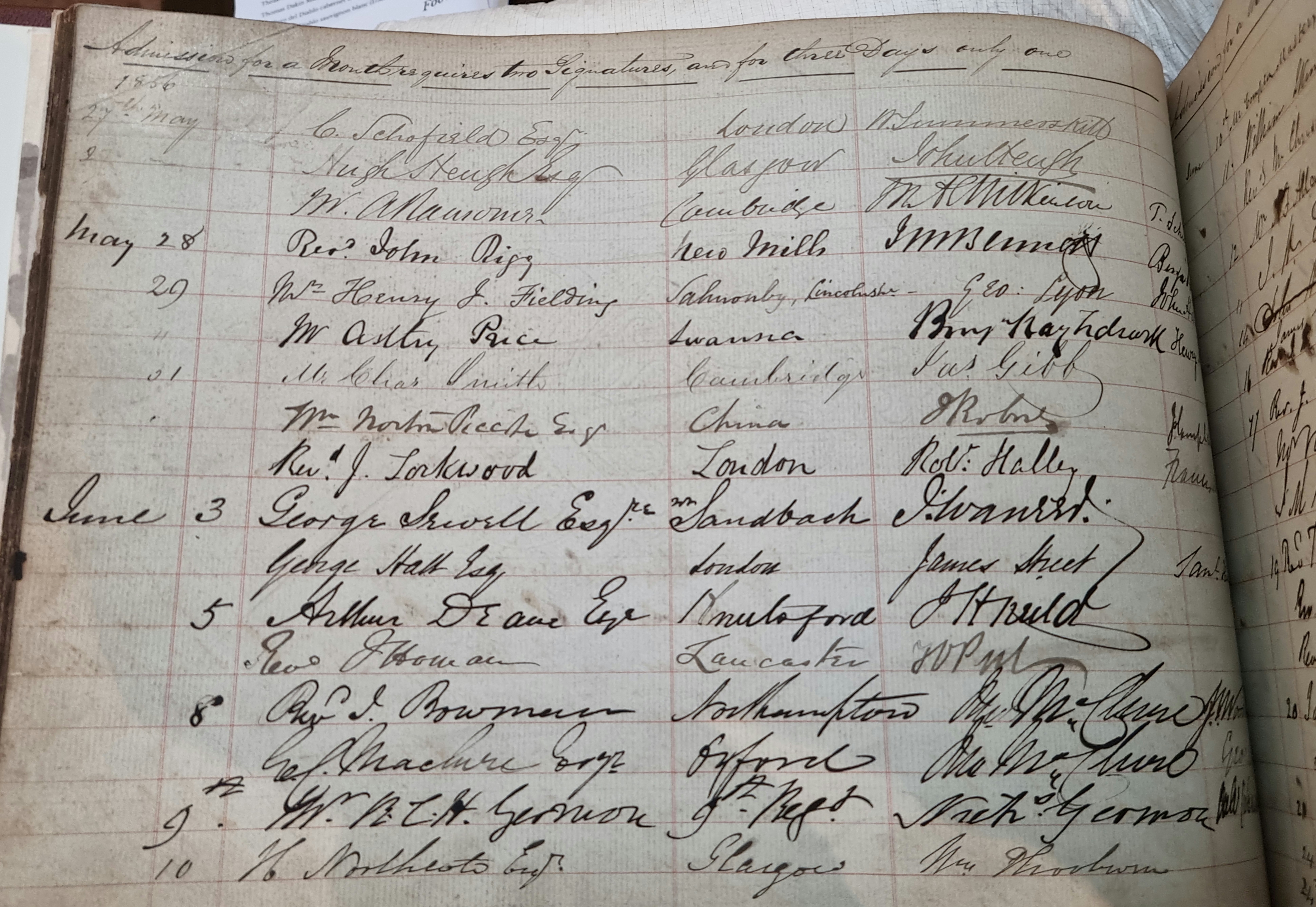
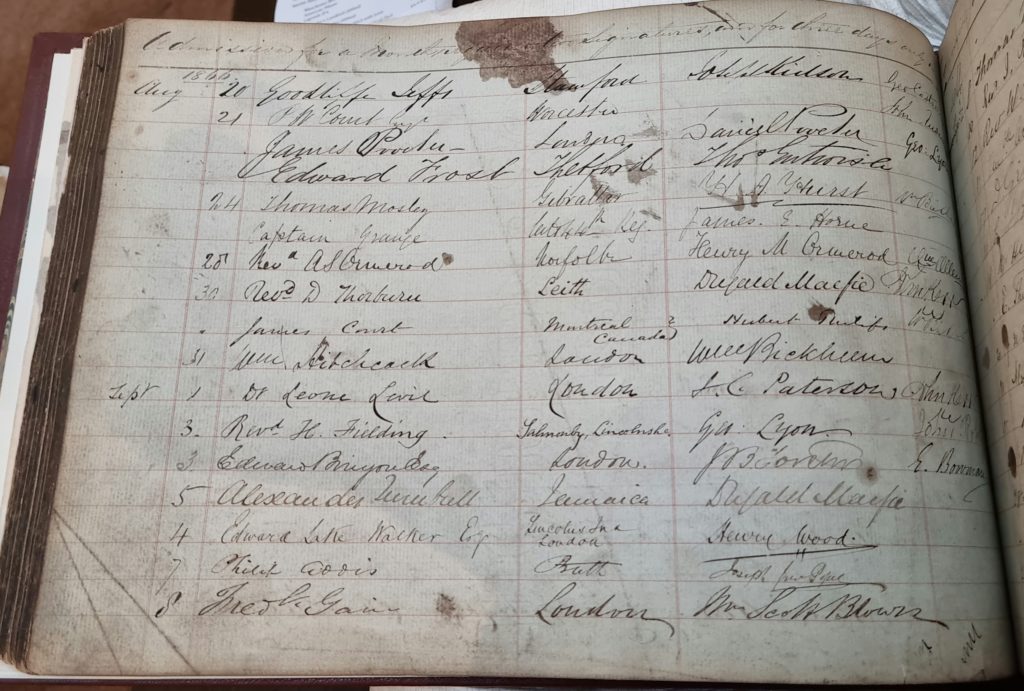
“At times, the books resemble a list of characters from a Boy’s Own adventure story, with mountaineers, palaeontologists, Irish cavalry officers and Napoleonic War luminaries all passing through the old entrance on Mosley Street. There are records of visitors from around the globe, as far as Rio de Janeiro, Old Calabar (Akwa Akpa), Calcutta (Kolkata), Bombay (Mumbai) and Tasmania.” [6]
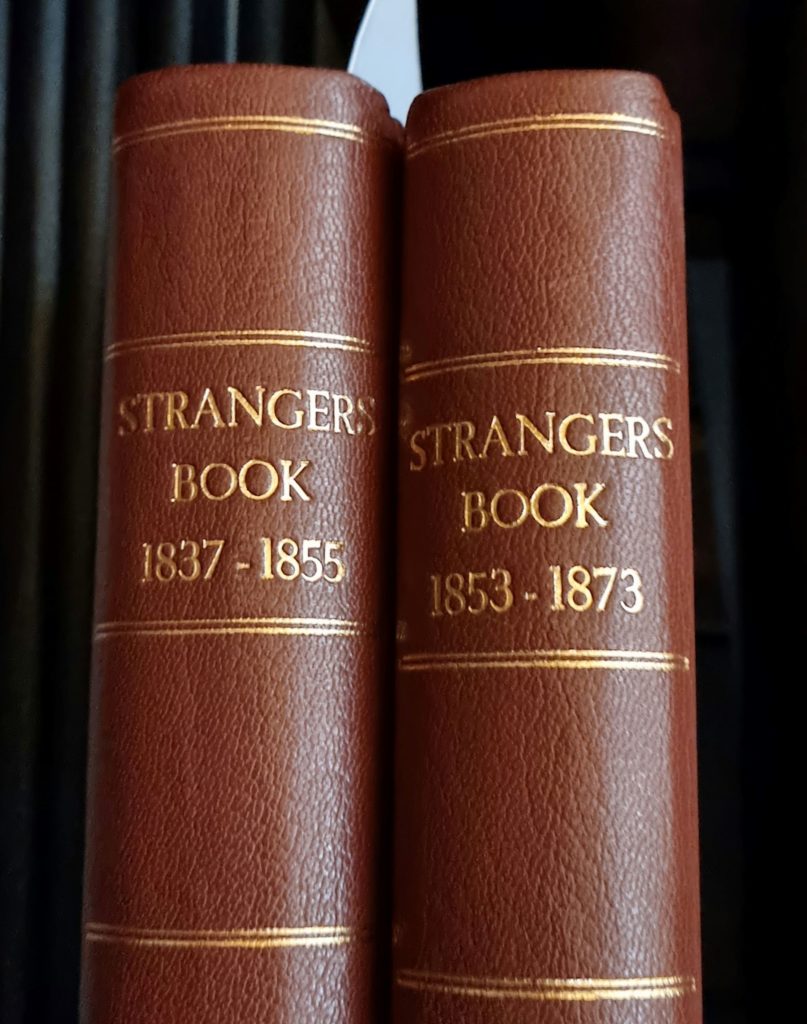
Although I wish I could have stayed for longer, I briefly looked at two volumes, covering the periods 1837-1855 and 1853-1873. Even with just a quick glance through the names listed in the volumes, there were multiple entries signed by visitors from Perthshire and other parts of Scotland. I’m sure a future comparison with the Innerpeffray visitors’ books would be very interesting! Hopefully I can plan out a full research trip to the Portico one day in the future (and finally get in to John Rylands!)
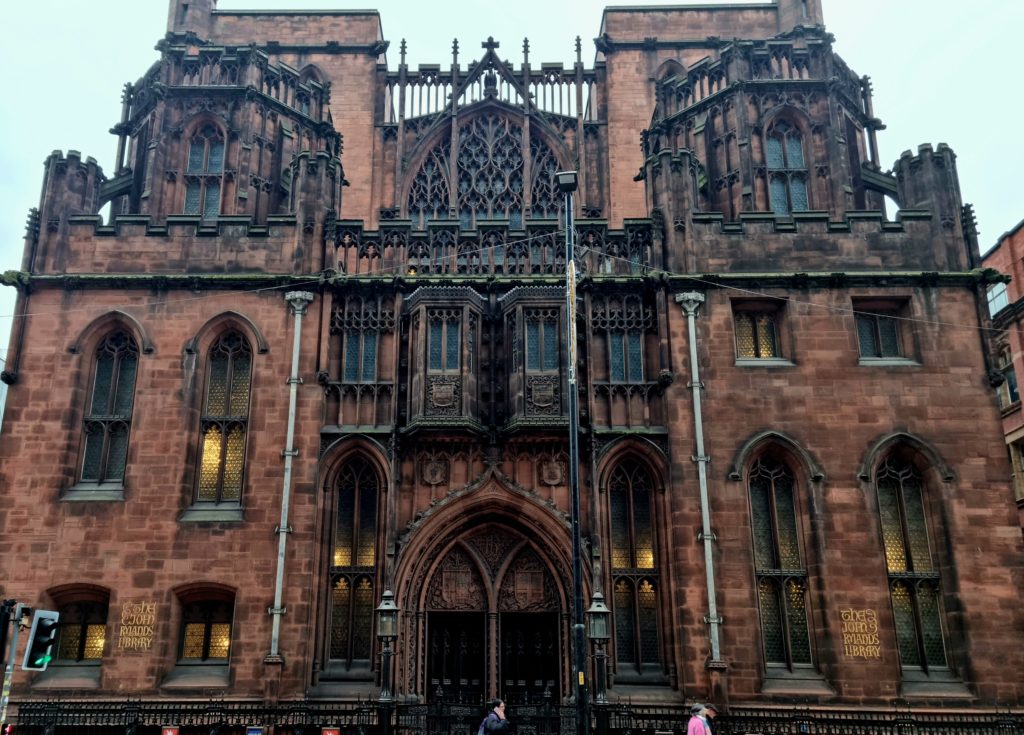
Isla Macfarlane, PhD Candidate
[1] Manchester City Council, ‘Inside Central Library’, History of Central Library <https://www.manchester.gov.uk/info/500325/central_library_building/4586/history_of_central_library/6> [accessed 12 June 2023].
[2] ‘A Brief History of Chetham’s’, Chetham’s Library <https://library.chethams.com/about/history/> [accessed 22 May 2023].
[3] David Drummond, ‘Will of David Drummond, Third Lord Madderty’ (Innerpeffray, 1680), p. 5, Library of Innerpeffray.
[4] Isla H. Macfarlane, ‘Beatrix Potter at Innerpeffray’, The Library of Innerpeffray Blog, 2021 <https://innerpeffraylibrary.co.uk/beatrix-potter-at-innerpeffray/>.
[5] My thanks go to Michelle D Ravenscroft for introducing me to the Strangers’ Books and bringing the following blog to my attention.
[6] Alex Boswell and Sarah Hill, ‘The “Strangers Book”’, Off the Shelf Blog, 2020 <https://www.theportico.org.uk/off-the-shelf-blog/strangers-book-rgbec>.
